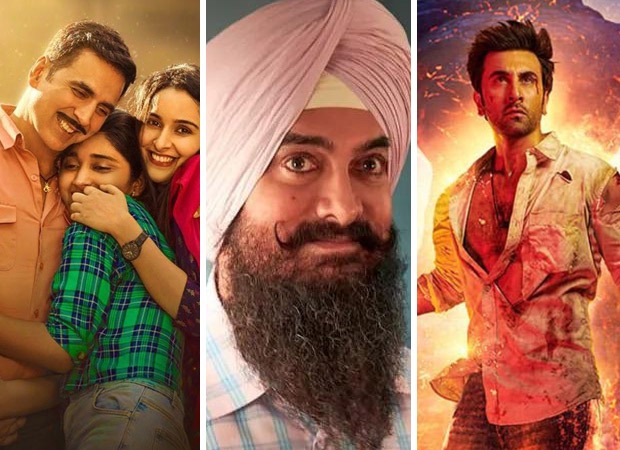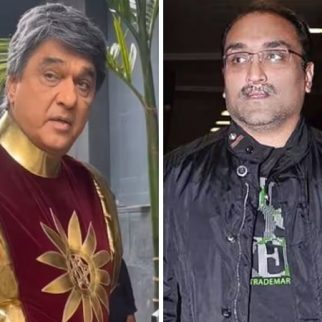Post-pandemic, the ‘new normal’ led to significant changes in the movie consumption pattern. With cinema halls shut, several films were released directly on digital platforms. When theatres restarted, the fear was that it’ll take a while for the business to come back on track. As a result, the filmmakers decided to release their films on OTT four weeks after it was released in cinemas. Earlier, the eight-week rule was followed. With streaming giants paying more for films that premiere on their platforms as early as possible after theatrical release, the four-week window rule was agreed upon by all parties, including exhibitors. The idea was that since the producers were suffering due to lower revenue from the box office, they should be compensated for it by premiering their film early online.

However, in the last few months, cinema halls began running with 100% occupancy everywhere. Many films did record some business, proving that the business is getting back on its feet. As a result, the various stakeholders have decided to adhere to the earlier arrangement of releasing the films online only after eight weeks of release in cinemas. The said rule will come into effect from August 1. This means that all the films which will be released in cinemas from next month like Raksha Bandhan, Laal Singh Chaddha, Liger, Brahmastra etc will premiere on OTT after completing eight weeks in cinemas.
When contacted, Devang Sampat, CEO, Cinepolis India, confirmed this development and said, “There was no rule as such. It was an understanding between the producers and exhibitors (due to the unusual circumstances). But now, the producers themselves have reached out to us and stressed on the exclusivity window for theatrical release.”
Film exhibitor and distributor Akshaye Rathi explained, “It’s a mutually agreed-upon call. Movies like RRR and KGF - Chapter 2 have done over Rs. 1000 crores net business. Films like The Kashmir Files and Bhool Bhulaiyaa 2 have done exceedingly well. JugJugg Jeeyo, too, has done really well. In that sense, the business has come back to normal. With absolute mutual consent and agreement between the production sector and exhibition sector, I believe movies are going back to having an eight-week window for the simple reason that it is in the interest of the producers. The streaming and satellite rights are sold for a fixed price. If the movie does exceedingly well on these platforms, there’s no upside to that. However, the box office is the only place which gives you an unprecedented lopsided upside. That’s the reason why every filmmaker would want to try and get a share of this pie. That can only happen when you give it a proper chance at the box office, that is, when the audience is not thinking in terms of ‘yeh film toh 2-4 hafton mein OTT pe aa hi jaayegi’. More than anything else, it’s about rebuilding the habit of the audience wanting to watch movies in theatres. And this only benefits the producers eventually. The more the box office collections are, the more the producers stand to gain.”

In the pre-pandemic era, a few filmmakers tried to get their films online before completing eight weeks in cinemas. However, they had to face a tough time. The Rajkummar Rao-starrer Shaadi Mein Zaroor Aana (2017) and Vikram Bhatt’s horror flick 1921 (2018) got a delayed release in multiplexes as their makers desired to not follow the eight-week directive. The shows of these films commenced in the afternoon, on the day of release, only after they assured multiplexes that their film will be released after eight weeks on OTT.
In January 2020, Ramesh Sippy’s delayed film Shimla Mirchi, starring Hema Malini, Rajkummar Rao and Rakul Preet Singh, didn’t release in multiplex chains as the makers had signed a deal with Netflix for an early premiere. Last year, just after the second wave, the makers of Kangana Ranaut-starer Thalaivii (2021) decided to not follow the temporary four-week rule and instead come on Netflix within two weeks. It was snubbed by multiplexes and the producers had to make do with a release on single screens and standalone multiplexes.
So after August 1, if any filmmaker wants to have an early OTT premiere, will he or she be allowed to do so? Akshaye Rathi replied, “It’s not like they won’t be allowed. They are the producers and it’s their copyright. On a case-to-case basis, depending on the cost-benefit analysis of the particular film, the producers and exhibitors will take a call. And forget about exhibitors in general. It is every exhibition chain’s call. PVR will take its own call and so will Inox, Cinepolis, Miraj, etc. Even single screen cinemas will take their own call. We have seen in the past where certain release plans of producers didn’t suit the exhibitors and they chose not to play. The others did.”
Ultimately, following the eight-week window arrangement is in the interests of everyone, including producers, feel exhibitors. Akshaye Rathi observed, “If the film delivers at the box office, the producers can negotiate a better satellite and OTT deal as well. Hence, if you give the box office a solid chance and it performs, the value of every other right amplifies. So it’ll be better for the producer in every possible way.”
BOLLYWOOD NEWS - LIVE UPDATES
Catch us for latest Bollywood News, New Bollywood Movies update, Box office collection, New Movies Release , Bollywood News Hindi, Entertainment News, Bollywood Live News Today & Upcoming Movies 2024 and stay updated with latest hindi movies only on Bollywood Hungama.


































